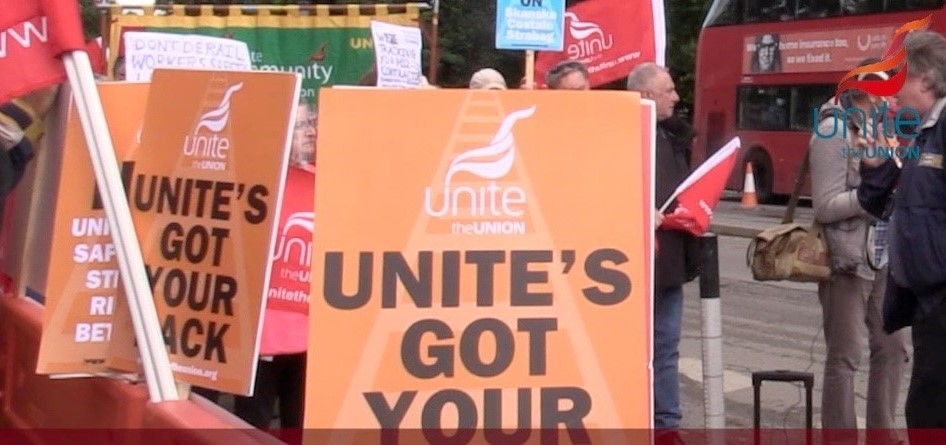“Tantamount to exploitation”
Unite believes that genuine, industry recognised apprenticeships are an excellent investment for UK industry and the economy. A high quality apprenticeship creates lifelong employment mobility, provides a firm foundation for an individual’s working life and career, and secures a sustainable skills base for the UK.
Unite has a long proud tradition in developing and supporting apprentices in skilled, technical, professional and craft based occupations, as well as working with employers to create and improve apprenticeship programmes.
On construction sites, in universities, the NHS, in aerospace, the auto industry, across manufacturing and the entire economy Unite apprentices are thriving on these â€earn while you learn’ programmes.
Apprentices need trade unions. Our union reps are securing some of the best apprentice pay deals and negotiating higher quality apprenticeships that far exceed minimum standards, particularly where there are collective bargaining agreements already in place.
It pays to be in Unite
Unite negotiates some of the very best pay and employment packages for apprentices in UK industry, over and above the national minimum wage (NMW) through collective bargaining.
To give you an example, an apprentice electrician on a 48 month apprenticeship under Joint Industry Board for the Electrical Contracting Industry, and Scottish Joint Industry Board (JIB and SJIB) will start on a national hourly standard rate of ÂŁ5.29 an hour for stage one, rising to ÂŁ11.50 an hour in the final stage of the 4th year.
The pay rates for an apprentice plumber on a 48 month apprenticeship – (JIB-PMES for England and Wales) are £6.43 an hour in the first year, rising progressively to £12.85 in the final stage of the 4th year.
While a 16 year old building trade apprentice under BATJIC (Building and Allied Trades Joint Industrial Council) will start on a basic rate of ÂŁ195 per week rising to ÂŁ10.13 per hour on an intermediate level 2 apprenticeship and ÂŁ12.45 per hour in the final year of a level 3 advanced apprenticeship.
Not to mention, collectively bargained overtime premiums, guaranteed hours, allowances, holidays and benefits, and enhanced rates for mature apprentices, the difference is clear.
Underpaid
Sadly the same can’t be said for all apprenticeships. The minimum wage rates for apprentices are pitiful with apprentices under the age of 19 or aged 19 or over and in the first year of their apprenticeship paid just £3.70 an hour (£3.90 an hour from April 2019). But some unscrupulous bosses are not even paying these low rates.
According to a 2016 government survey of apprentice pay published in July 2017, nearly one in five were illegally underpaid. The proportion of apprentices being paid less than the legal minimum wage has increased from 15 per cent to 18 per cent between 2014-2016. These are very unlikely to be in unionised workplaces.
Unite is firmly of the view that the low wages suffered by many apprentices is tantamount to exploitation, and in a similar vein the â€scores on the doors’ tendency damages the apprenticeship brand.
It does beg the question of how can an apprenticeship be genuinely described as a â€quality apprenticeship’ if wage exploitation of young people and others is taking place?
It’s simply wrong that good employers, who rightly invest in apprenticeships and training, pay a fair wage to their apprentices, are being undercut by unscrupulous bosses who think nothing of exploiting the system. These are the ones who don’t even pay the statutory minimum, let alone collectively agreed rates of pay.
Unite is determined to expose bad practice and is pushing for better monitoring of apprenticeship standards and frameworks. We believe that registered training providers and bodies like the Institute for Apprenticeships and Technical Education have an important role to play in the monitoring of apprenticeship standards and frameworks, from delivery and outcomes, all the way through to employment and occupational status.
We also believe that pay should form a part of the already rigorous monitoring process, something which is currently lacking and needs addressing. While the Government and HMRC “named and shamed” over 600 employers for non-compliance with the National Minimum Wage in 2018, the apprentice pay survey data suggests that was just the tip of the iceberg.
Apprentices need Unite and a Labour government
In 2017, the Labour party manifesto included a pledge to roll out sectoral collective bargaining across the economy, ensuring that employees and apprentices get a collectively bargained fair wage and the going rate for the job.
Unite couldn’t agree more. It’s a sad state of affairs but after nearly a decade of Tory rule the principle and concept of a level playing field in fair wages has been seriously eroded. Only a Labour government can address and bring out change and fairness to eradicate such practices, not least in apprentice pay.
 Like
Like Follow
Follow


